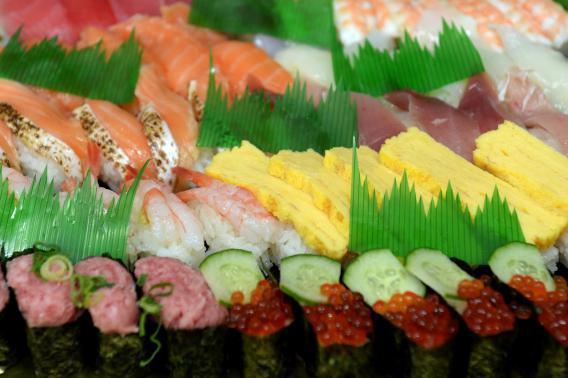Mashiko, a sushi restaurant in Seattle, garnered the attention of national food blogs recently when it published a post on its own blog called “An Open Letter to Bigoted Diners.” One of Mashiko’s chefs is a white woman, and several of its other employees are non-Japanese. Having received comments in person and on Yelp about its staff’s race, Mashiko’s owners decided to make one thing clear: “this discrimination nonsense has got to stop.”
Would you refuse service at an Irish pub if your server didn’t speak with a fanciful brogue? You do realize that sometimes people in this great big melting pot may not have a look that accurately reflects their genetic makeup. Do you also insist on DNA tests wherever you go? Of course not. Stop being an ignorant racist.
The post goes on to say that “you are an absolute fool” if you refuse sushi prepared by a white female chef, and—just in case the blog post’s title was too subtle—calls online commenters who mention the chef’s race “bigots” who “prove to the entire world how cowardly and small you are.”
Aggressively antagonizing your patrons isn’t a traditional PR move, but it seems to be working in this case: Most of the scores of comments on the open letter are unequivocally supportive of its message. But does raising your eyebrows at a white sushi chef really make you a bigot?
Of course a white person can be an accomplished and talented sushi chef: Race has nothing to do with one’s aptitude for omakase. And the expectation that a sushi chef fit a certain Jiro-like stereotype—Japanese, male, solemn, taciturn—smacks of orientalism.
On the other hand, to say that “race, gender, and sexual orientation truly do not matter,” as Mashiko’s owners do in the open letter, seems like an oversimplification. There’s a long history of cultural appropriation in America—specifically, of white Americans indirectly benefiting from racism and profiting off of other groups’ cultural traditions. Some of the clearest cases of this phenomenon have been musical, from Elvis Presley to Miley Cyrus. But it can also happen in the culinary arts. (Paula Deen, for instance, has been accused of getting “rich off the recipes of the slave women [her] grandfather owned.”) And whenever it occurs, minority groups often feel wronged and exploited, for good reason.
Mashiko, which has a Japanese owner, should not be accused of cultural appropriation. But if, hypothetically speaking, a group of white Americans opened a sushi restaurant and hired an all or mostly white staff, would race still “not matter”? In that instance, race would matter, and quite a bit, because the owners would be capitalizing off of others’ culinary traditions and their own white privilege at the same time. It sounds great to say that everybody is equal or that you don’t see race, but it minimizes the persistent systemic racism that favors white people over everyone else.
Which is why it seems unfair to accuse consumers who are wary of a white sushi chef of bigotry and discrimination. Sure, they might be attached to some exotic fantasy of a sushi chef, in which case they deserve Mashiko’s owners’ public shaming. But they might just be trying to look at race in a historical context rather than a vacuum.
